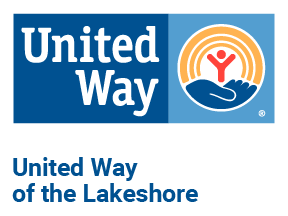The Michigan Association of United Ways (MAUW) recently released a study on the condition of Michigan’s working families, which it has dubbed ALICE households—those that are Asset Limited, Income Constrained, Employed. The report found that 43 percent of Michigan households fail to make ends meet, up from 41 percent in 2017. Despite an overall improvement in employment and gains in median income, 1.66 million Michigan households could not afford basic needs such as housing, childcare, food, transportation, health care, and technology.
The cost of the average Michigan family budget also increased by 27 percent from 2010 to 2017, despite a low rate of inflation nationwide—12 percent during the same timeframe. “Through the release of our third ALICE Report, Michigan’s United Ways are banding together to bring to light the issues hardworking Michigan residents face every day,” said Mike Larson, CEO, Michigan Association of United Ways. “As we continue to uncover the depth and breadth of Michigan’s ALICE population, we hope to encourage legislators and business leaders alike to chart a path forward for our state’s most vulnerable residents.”
At the statewide release, several legislators and business leaders spoke on behalf of the United Way’s efforts to support ALICE families. “Nobody working more than 40 hours a week should be struggling to take care of themselves and their families,” said Michigan Governor Gretchen Whitmer. “We need to come together and invest in real solutions that will help Michiganders get ahead.”
United Way of the Lakeshore joins with roughly 450 United Ways from 15 states across the country to better understand the struggles of ALICE. Various organizations across the country are also using this data to better understand the needs of their employees, customers, and communities. In Michigan, the Consumers Energy Foundation granted $25,000 to fund the study. “At Consumers Energy, we are committed to helping Michigan succeed. The ALICE Report is important because it provides policymakers, community leaders and businesses with detailed data to shape good decisions that serve the people of our state,” said Brandon Hofmeister, president of the Consumers Energy Foundation.
The ALICE Report drills data down through the county and municipal levels across the state. The new report also starts to explore how different cross-sectionalities are affected that are ALICE. We now are able to look at our community in a point in time to show what disparities and struggles look like for individuals by race, age, geographical location, family size, and more. We can now see a breakdown of the labor force for each individual county and a side by side comparison resource gaps in our community. Overall, the updated ALICE Index* let's us see clearly the barriers that are in place for our families that are "just on the bubble" of not being able to meet their basic needs.
To produce the United Way ALICE Report for Michigan, a national team of researchers collaborated with the Michigan Research Advisory Committee, composed of representatives from across the state, which advised and contributed to the report. The report focuses on providing objective, comprehensive county-by-county data that identifies the size of the ALICE population in Michigan and works to identify the obstacles that keep these residents from achieving financial independence. The current report builds on data found in the 2019 ALICE Study, showing not only continuity but also highlighting United Way’s commitment to this data.
United Way of the Lakeshore provides numerous supports for ALICE households, such as offering housing assistance, access quality childcare, free tax filing programs, prescription assistance, as well as funding for more than 76 partner agencies programs supporting these families. For more information on the ALICE Report and how you can support ALICE families, visit https://www.unitedforalice.org/county-profiles/michigan
*The ALICE Essentials Index measures the change over time in the costs of the essential goods and services that households need to live and work in the modern economy.
The ALICE Essentials Index includes only essential household items (housing, child care, food, transportation, health care, and a smartphone plan). In comparison, the Bureau of Labor Statistics’ Consumer Price Index (CPI) covers a large group of goods and services that urban consumers buy regularly (housing, food and beverages, transportation, medical care, apparel, recreation, education, and communication services). The ALICE Essentials Index is calculated for both urban and rural areas.
Join Us For Our Local Rollout!
On April 27th, during the United Way of the Lakeshore Annual Membership Meeting, we will be releasing and covering the new ALICE data for Muskegon, Newaygo, and Oceana Counties! We will be announcing new datapoints, a speaker series centered around ALICE, our advocacy plan in relation to ALICE, and how individuals can get involved! This presentation will be held on April 27th from 8:00 AM - 9:30 AM via Zoom! For questions or more details please contact Stephanie at stephanie@unitedwaylakeshore.org

